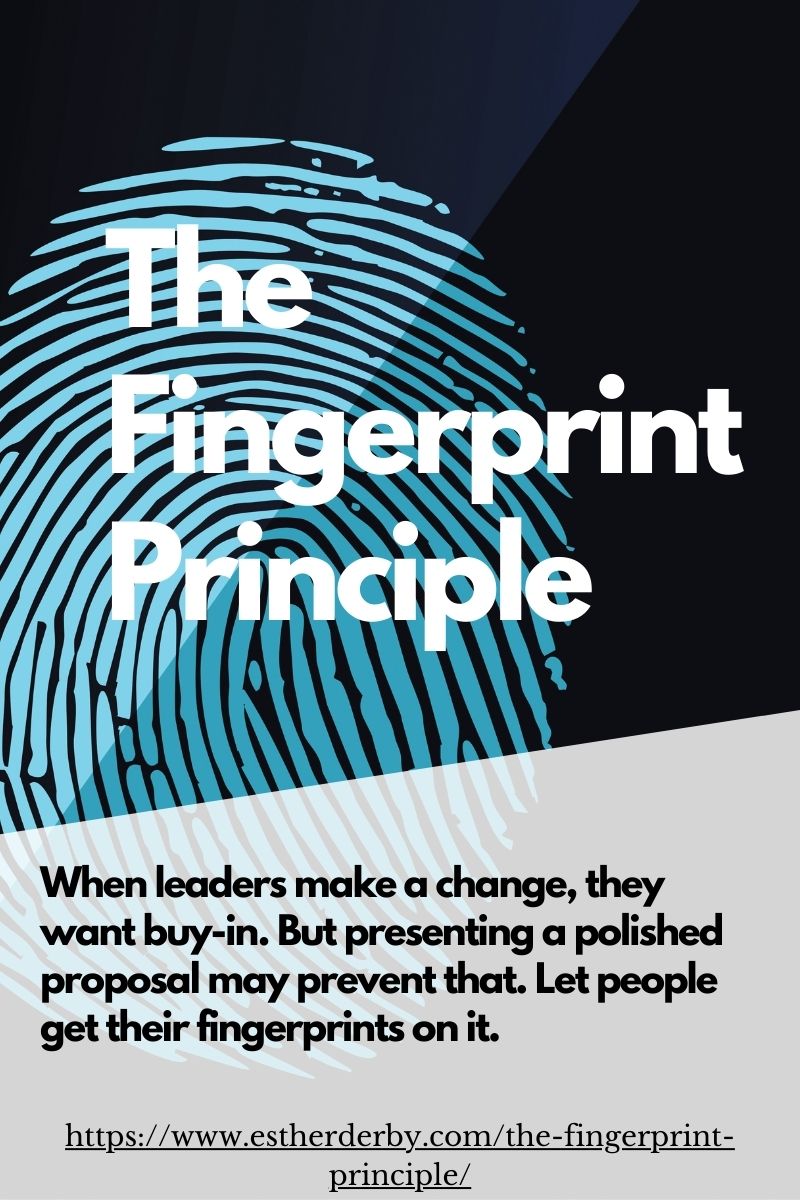In my previous post, I described a framework for offering feedback on work results and work relationships.
Step 2 is Describe behavior or results. Use neutral language and examples. If the person doesn’t recognize himself in the description or agree with the data, the conversation is over. Labels, comparatives, and absolutes raise defenses.
Karen asks:
…. in the case of, “If the person doesn’t recognize himself in the description or agree with the data, the conversation is over”, what is the manager’s next step?
I don’t know the specifics of Karen’s situation; here’s my general advice
First, check your own language.
Adults almost always reject negative labels. (Unless they’ve been hearing them since they were tiny children, in which case their self-perception has probably become a self-fulfilling prophecy. But that’s another story.) So a label such as, inconsiderate, unassertive, sloppy, is not likely to move the conversation forward and achieve change.
Descriptions that are vague can have the same effect. I met a woman who was told in her annual review, “You are too nice.” Her manage didn’t provide any examples of behavior or impact. That left the feedback receiver struggling to figure out what her manager was talking about. She was reviewing past events trying to sift out what event could possibly have triggered the comment. When people are left to do this, they often pick an incident completely unconnected to the genesis of the feedback, with predictable consequences.
Absolutes invite people to find the one counter example to your statement. If you tell some one he is always late, he will find the one instance where he was on time.
Labels work against perceptions that the feedback is fair, and that the feedback giver has good intentions. (Point 1 and 2 on conditions for effective feedback) When the feedback receiver questions the label, and the conversations devolves into yes-you-are/no-I’m-not, violating Point 3 on conditions for effective feedback. Which in turn creates the feeling neither the process for developing the feedback, nor the way it was delivered is fair (Point 4).
It’s really hard to break the labels habit and eliminated loaded words. Really hard.
Even when your language is clear and neutral, it could be that the person needs time to process what you’ve said. That not unusual, especially when the new information conflicts with their own self-perception. People are generally more receptive if they’ve heard something about that area of behavior more before. Pushing some one to acknowledge your point of view during the initial conversation will fuel the defense dynamic.
Some options:
• offer some time to process with an agreement to revisit the feedback in a few days.
• suggest that the person talk to a handful of trusted peers to see if they have noticed the behavior
• ask the person to monitor his own behavior for a period of time and see if he notices himself doing what you’ve described
All this assumes that the organization can tolerate the behavior for a short time longer as the person works through his process. And it assumes that you have a generally positive relationship with the person. The timeframe you set depends on the impact of the behavior.
In a hierarchy, there’s always “the Big Game” of who get to tell who what to do. Playing that game is a loosing strategy.
You might shift your approach and focus on the desired outcome rather than the current behavior. If the behavior is getting in the way of that person doing his job, you can shift the conversation to “You’ll be more successful when you do ________. Here’s why.”
If it’s something like claiming to be unaware that he’s pinching another person’s arm (or other body parts…believe me, I’ve seen all sorts of astonishing behavior in the workplace), it’s time for that person to go. In such a case, or if it’s a legal or ethical violation, have your ducks lined up with HR or the company lawyer before you go into the conversation.
There’s another sort of case, where other people are reporting behavior that the person denies. It could be a conspiracy, but that’s not too likely. In this case, your data is second hand, so you have to avoid the tattle tale trap. Rather than report what other people have said, which puts you squarely in the trap, report your data.
Here’s an example from my days as a manager.
My group worked on investment accounting software for a big financial services firm. The system included an overnight cycle. When we put new code into production that affected the overnight cycle, the group rotated on-call responsibility, just in case something went wrong. When something did go wrong, the operations people would phone the person on call to fix the problem.
One of the group members, Joni was more than cranky when she was awakened from her sleep. She yelled, she swore, she told the ops people they were stupid.
Obviously, the ops people weren’t about to put up with Joni’s abuse. So they skipped Joni’s name when she was first the call list and dialed the person who was second on the list. That’s when I heard about the problem.
My first step was to support people to speak directly to Joni. Feedback is almost always most effective when it comes directly from the person who is affected by the behavior. Plus, it avoids the emotional escalation of kicking the problem up the hierarchy.
Sad to say, Joni she yelled at the people who spoke to her directly.
I hand not observed her abusive behavior directly, so I wasn’t going to get any where with second hand reports. I had seen enough of Joni in action to know she was sometimes impatient and brusque with her peers even when I was in the room, and I’d coached her on that.
So, I talked about the data I did have related to her abusive manner with the ops folks:
I had one person who was upset that his “first call” rotation was essentially doubled, since he got called when he was first and when Joni was first.
I had three ops people who were feeling abused.
I talked about the impact it was having on our relationship with ops, the team and our ability to get work done.
I acknowledged that I hadn’t seen the behavior first hand. I asked her for her perspective.
She denied yelling or swearing, and asserted that the ops people were stupid and incompetent.
My response was, “That may be your perception. Whether you think they are competent or not, it’s not acceptable to yell and swear at people.”
I talked about consequences. I told Joni that I wasn’t going to get into a he said/she said argument, but that it seemed clear that something was amiss since several people were upset by their interactions with her.
And I let her know what would happen if there were more complaints about her swearing and yelling at people.
I’d reviewed the HR policy, so I knew that the next time someone complained, I could ask for a formal HR inquiry.
I didn’t hear about Joni abusing people again, probably because she quit a short time after this conversation.
Consequences do sometimes focus the mind.
If you think my approach seems harsh, consider the No Asshole Rule.









0 Comments